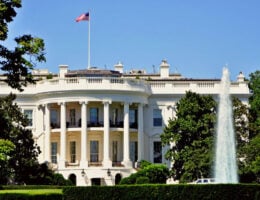A recent memorandum from Attorney General Pam Bondi signals a potential shift in the Department of Justice’s FCPA enforcement priorities. According to the memorandum, FCPA enforcement should prioritize foreign bribery linked to Cartels and Transnational Criminal Organizations (TCOs), potentially altering the landscape of white-collar corporate enforcement. While traditional FCPA cases will likely continue, the new directive grants local US Attorneys’ Offices greater latitude in conducting FCPA investigations touching on Cartels and TCOs.
On 1 August 2024, the US Department of Justice Criminal Division launched a Corporate Whistleblower Awards Pilot Program (“Program”). The announcement was previewed in remarks by DOJ officials in March, and follows the rollout of the DOJ’s Individual Voluntary Self-Disclosure Program in April 2024 and similar programs implemented in the Southern District of New York (SDNY) and the Northern District of California (NDCA), in February and March 2024. Under the Program certain individuals who provide original and truthful information about corporate misconduct may be eligible to receive an award if the information results in successful criminal prosecution and criminal or civil asset forfeiture.
In Snyder v. United States, the Supreme Court, in a 6-3 decision authored by Justice Kavanaugh, significantly limited the federal statute criminalizing gratuities in state and local jurisdictions. Snyder, a mayor, awarded a USD 1.3 million contract and received a USD 13,000 payment from the benefiting company. The Supreme Court ruled that the relevant statute, Title 18 section 666, applies only to bribes paid or promised before an official act, not after-the-fact gratuities.
Having not secured a deferred prosecution agreement in respect of U.K. Bribery Act offences since 2021 and having been rocked by a series of shortcomings regarding its investigation and prosecution of cases, the SFO has arguably been at its lowest ebb.
Baker McKenzie Partner Peter Tomczak has co-authored the sixth edition of The Foreign Corrupt Practices Act Handbook, a sought-after guide for in-house counsel at multinational companies seeking guidance and clarity on FCPA risks globally. The Handbook is published by the American Bar Association.
The Handbook has been fully updated and expanded, offering a comprehensive analysis of FCPA developments as updated from the previous 2018 edition, and anti-bribery and anti-corruption implications for transactions and compliance programs, offering practical guidance on how to address these issues.
Against a backdrop of economic stagnation and geopolitical conflict, businesses are preparing for a challenging year. Global disputes will continue at pace, according to insights from more than 600 senior lawyers at large corporations, with ESG and employment risks the greatest areas of concern. Our seventh annual report provides detailed analysis of disputes trends, as well as sectoral and region-specific developments, to prepare your organization for The Year Ahead.
On 4 October 2023, Deputy Attorney General Lisa Monaco of the U.S. Department of Justice announced a new DOJ-wide policy that seeks to provide greater certainty as to the potential benefits to acquirers that uncover criminal conduct at a target company. The DOJ’s Mergers & Acquisitions Safe Harbor Policy for voluntary self-disclosures provides greater certainty to acquirers who self-report within the safe harbor period, fully cooperate with the DOJ in its investigation, and engage in requisite, timely, and appropriate remediation, pay restitution, and disgorge any ill-gotten gains.
ESG litigation risk is on the rise for corporates. They are facing the prospect of real monetary liability and challenges to their business models and corporate governance, whether as a result of shareholder activism, or claims by individuals, groups or communities impacted by the company’s activities or those of its subsidiaries or supply chain partners. And directors of those companies find themselves particularly under the spotlight, with claims being crafted in some cases around breach of director duties. In this latest instalment of our Demystifying ESG series, we will be delving into what this evolving liability landscape means for companies, their directors and those advising boards, with perspectives from the US, the U.K. and Europe.
Most major companies have implemented a compliance program but often struggle with two issues: ensuring the compliance program remains effective in light of their existing and changing landscape and making it more efficient by leveraging technology. The Compliance Cockpit specifically addresses both issues.







![Global: Evolving Liability Landscape [Webinar- 21 June 2023]](https://www.globalcompliancenews.com/wp-content/uploads/sites/43/2022/08/trade-3-260x200.jpg)

